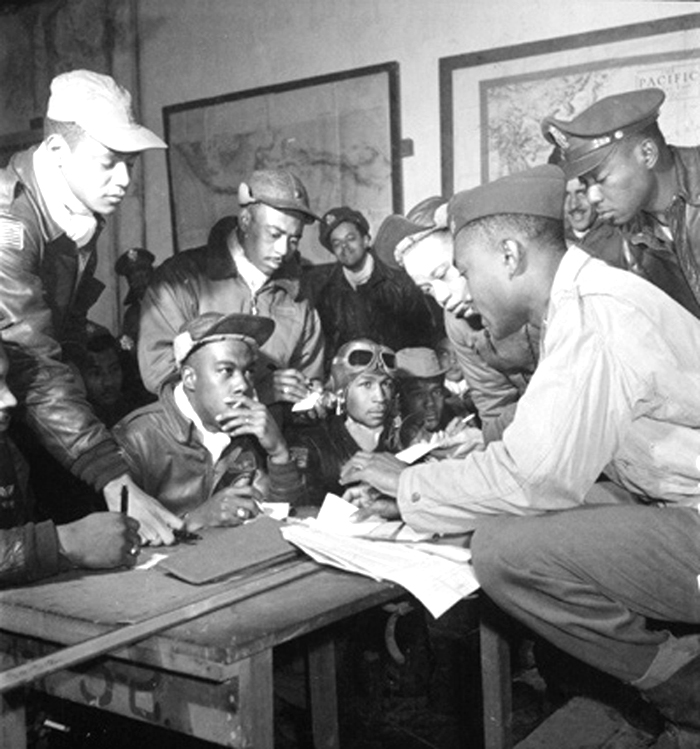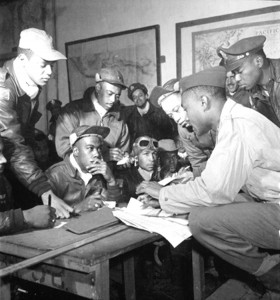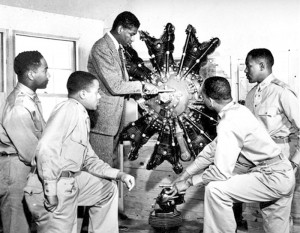The Army called it the “Tuskegee Experiment,” a name reflective of widespread skepticism of the prospects of successfully training America’s first African-American military pilots. But the pilot candidates who assembled at Alabama’s Tuskegee Institute in 1941-—as well as the all-black personnel who supported their efforts—-were made of braver, more dedicated stuff than the racist critics could ever have imagined, and the story of the so-called Tuskegee Airmen is one of the proudest in all of American military aviation history.
Fighting their way across North Africa, Sicily and the European mainland under the disciplined leadership of Col. Benjamin O. Davis, Jr., early members of this group carved out an enviable combat record against the Nazis while thoroughly exploding the myth of racial inferiority. Many others trained at Tuskegee too late to see combat, but their struggles against a racially divided military, not to mention the fiercely divided society in which they lived, were none the less heroic.
On Saturday, February 5, at 2:00 p.m., The Museum of Flight celebrates Black History Month with an annual program dedicated to the valor of the Tuskegee Airmen of World War II, this year featuring special guests William Broadwater and Ira O’Neal Jr.
Phoenix native O’Neal was drafted into the segregated 1st Army Air Corps in 1942. Commissioned as a first lieutenant, he was attached to the 42nd Aviation Squadron, where he served as a physical training instructor to pilot trainees at Tuskegee until 1948, when he was discharged from the Army-—along with most other African-American officers. In 1949, he enlisted in the U.S. Air Force and served until his retirement in 1972. O’Neal currently resides in Washington, D.C.
Growing up in Bryn Mawr, Pa.-—where he still lives—-Bill Broadwater was an awestruck neighbor of pioneering black pilot C. Alfred “Chief” Anderson. Years later, Anderson was the chief flight instructor at the Tuskegee Institute, and Broadwater was one of his students. Upon earning his wings, Broadwater was assigned to fly B-25 medium bombers with the 477th Bombardment Group, but the war ended before the unit left the States, and Broadwater was discharged in 1946. He returned to school and eventually became an FAA air traffic controller-—one of the first African-Americans hired in this capacity. Broadwater spent 29 years working for the FAA, during which time he rose to the position of chief of the Airspace, Obstruction and Traffic Rules Division. He is also a founding member and past national president of Tuskegee Airmen, Inc.
Both Broadwater and O’Neal will share unique insights from their experiences during and after Tuskegee; they will also answer questions from the audience and sign autographs. Several other members of the Tuskegee Airmen are also expected to be present.
This public program is free with museum admission.
For more information, [http://www.museumofflight.org/].













